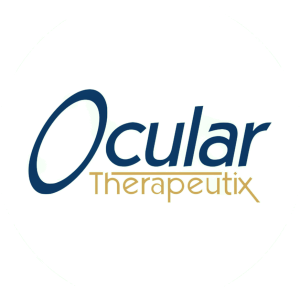Ocular Therapeutix™ Announces FDA Feedback That SOL-R Trial is Appropriate as a Registrational Study in Wet AMD
Rhea-AI Summary
Ocular Therapeutix (NASDAQ: OCUL) has received FDA confirmation that its Phase 3 SOL-R clinical trial is suitable as a registrational study for AXPAXLI™ (axitinib intravitreal implant) in treating wet age-related macular degeneration (wet AMD). The FDA agreed that using one superiority study (SOL-1) and one non-inferiority study (SOL-R) is acceptable for a potential New Drug Application. SOL-R evaluates repeat dosing of AXPAXLI every six months compared to standard aflibercept treatment. This development clarifies the regulatory path for AXPAXLI in wet AMD, potentially offering a new treatment paradigm with long-term visual improvements through durable VEGF suppression.
Positive
- FDA confirmation of SOL-R as a registrational study for AXPAXLI in wet AMD
- Clear regulatory path established for AXPAXLI through SOL-1 and SOL-R trials
- Potential for AXPAXLI to provide long-term improvements in visual outcomes
- Accelerated enrollment in SOL-1 study
- Rapid development and initiation of SOL-R study within three months
Negative
- None.
News Market Reaction
On the day this news was published, OCUL gained 6.08%, reflecting a notable positive market reaction.
Data tracked by StockTitan Argus on the day of publication.
Clear Regulatory Path for AXPAXLI™ in Wet AMD Through Ongoing SOL-1 and SOL-R Registration-Enabling Trials
Ocular to Host a Q2 2024 Conference Call and Webcast Today, August 7th, at 8:00 AM ET
BEDFORD, Mass., Aug. 07, 2024 (GLOBE NEWSWIRE) -- Ocular Therapeutix, Inc. (NASDAQ: OCUL, “Ocular”, the “Company”), a biopharmaceutical company committed to improving vision in the real world through the development and commercialization of innovative therapies for retinal diseases and other eye conditions, today announced that the Company has received a written response from the U.S. Food and Drug Administration (FDA) that the Phase 3 SOL-R clinical trial is appropriate for use as the Company’s second adequate and well controlled study of AXPAXLI™ (axitinib intravitreal implant, also known as OTX-TKI) for the treatment of patients with wet age-related macular degeneration (wet AMD).
In a Type C written response, the FDA agreed that the SOL-R repeat dosing wet AMD study is appropriate as an adequate and well-controlled study in support of a potential New Drug Application (NDA) and product label. The FDA also noted that the use of one superiority study and one non-inferiority study is generally acceptable as the basis of an eventual NDA in wet AMD. Together, the Company intends the ongoing SOL-1 and SOL-R Phase 3 clinical trials to form the basis for the regulatory filing of AXPAXLI for wet AMD, assuming successful completion.
Ocular recently announced that the first subjects have been enrolled in the SOL-R non-inferiority study evaluating repeat dosing of AXPAXLI. Enrollment in the SOL-1 superiority study evaluating a single AXPAXLI implant continues to accelerate, with subjects who do not meet randomization criteria having an opportunity to be enrolled into SOL-R.
“We are very pleased that the FDA has found the SOL-R repeat dosing study to be acceptable as a registrational trial of AXPAXLI in wet AMD. This is an outstanding achievement for Ocular that clarifies the regulatory path for the two complementary Phase 3 studies in the AXPAXLI wet AMD program, SOL-1 and SOL-R,” said Pravin U. Dugel, MD, Executive Chairman, President and Chief Executive Officer of Ocular Therapeutix. “Our Phase 3 program is designed to align with the FDA’s guidance and provide commercially meaningful data. Thanks to the efforts of our clinical team, we have accelerated enrollment in our first study, SOL-1. In addition, over a period of less than three months, the team was able to conceptualize SOL-R, activate clinical sites, enroll the first subjects, and has now obtained confirmatory FDA feedback regarding the registrational study. We look forward to continuing our collaboration with regulatory authorities as we work towards our goal of making AXPAXLI available to people with wet AMD.”
“Patients with wet AMD need new therapeutics that can provide long-term improvements in visual outcomes through durable and sustained suppression of VEGF. The initiation of the Phase 3 AXPAXLI program is great news for the retina community because it potentially brings us one step closer to having a new treatment paradigm for patients with wet AMD. In addition, the AXPAXLI program provides an opportunity to be part of innovative study protocols that have been accepted for registration-enabling studies by the FDA,” said Carl C. Awh, MD, FASRS, a Past-President of the ASRS and President of Tennessee Retina, a member of the Retina Consultants of America network. “Now that both SOL-1 and SOL-R are open for enrollment, people with wet AMD have two opportunities to participate in a clinical study for AXPAXLI. When I talk with my patients, they find it comforting to know that everyone who is randomized into each study is guaranteed to receive an active agent. Patients who are not eligible to be enrolled in SOL-1 are also enthusiastic to participate in SOL-R because of the ‘real-world’ repeat dosing element. I also feel the introduction of a third arm to ensure adequate masking, without the use of sham injections, enhances the integrity of the SOL-R study. I am glad to be part of two studies that have the potential to provide the retina community with important data on efficacy, durability of response, and dosing flexibility of AXPAXLI, and improve the care of people with wet AMD.”
SOL-1 is a superiority study comparing a single AXPAXLI implant to a single aflibercept (2 mg) injection, after both arms receive two aflibercept (2 mg) loading doses. SOL-R compares AXPAXLI dosed every six months (Q6M) to the current standard of care, aflibercept (2 mg) dosed every eight weeks. A third arm evaluating 8 mg aflibercept dosed Q6M is incorporated in the SOL-R study to ensure adequate masking, following the FDA’s recommendation that sham injections do not provide complete masking and therefore may elicit potential bias.
Conference Call and Webcast Information
Ocular Therapeutix will host a conference call and webcast today at 8:00 AM ET to discuss recent business progress and financial results. To access the call, please dial: 1 (800) 343-4136 (United States) or 1 (203) 518-9843 (International) and reference the conference ID “OCULAR”. To access the webcast, please click here. The live and archived webcast can also be accessed by visiting the Ocular Therapeutix website on the Events and Presentations section of the Investor Relations page. A replay of the webcast will be archived for 90 days.
About AXPAXLI
AXPAXLI™ (axitinib intravitreal implant, also known as OTX-TKI) is an investigational bioresorbable, hydrogel implant incorporating axitinib, a small molecule, multi-target, tyrosine kinase inhibitor with anti-angiogenic properties, being evaluated for the treatment of wet AMD, diabetic retinopathy and other retinal diseases.
About the SOL-R study
The registrational Phase 3 SOL-R trial (NCT06495918) is designed to evaluate the safety and efficacy of AXPAXLI in a multi-center, double-masked, randomized (2:2:1), three-arm study that will involve sites located in the U.S. and the rest of the world. The trial is intended to randomize approximately 825 subjects who are treatment naïve or diagnosed with wet AMD in the study eye within three months prior to enrollment.
The non-inferiority study reflects a patient enrichment strategy that includes multiple loading doses of aflibercept and monitoring to exclude those with significant retinal fluid fluctuations. In the first arm, subjects are randomized to receive a single dose of AXPAXLI at Day 1 and are re-dosed at Week 24. In the second arm, subjects receive aflibercept (2 mg) on-label every 8 weeks. In a third arm, subjects receive a single dose of aflibercept (8 mg) at Day 1 and are re-dosed at Week 24, aligned to the AXPAXLI treatment arm for adequate masking. Subjects in any arm meeting pre-specified rescue criteria will receive a supplemental dose of aflibercept.
The primary endpoint is non-inferiority in mean best corrected visual acuity (BCVA) change from baseline between the AXPAXLI and on-label aflibercept (2 mg) arms at one year.
About the SOL-1 study
The registrational Phase 3 SOL-1 trial (NCT06223958) is designed to evaluate the safety and efficacy of AXPAXLI in a multi-center, double-masked, randomized (1:1), parallel group study that involves sites primarily located in the U.S. The trial is intended to randomize approximately 300 evaluable treatment-naïve subjects with a diagnosis of wet AMD in the study eye.
The superiority study begins with an eight-week loading segment prior to randomization, a 9-month treatment segment, followed by a safety follow-up. During the loading segment, subjects who have 20/80 vision or better and who satisfy other enrollment criteria receive two doses of aflibercept (at week -8 and week -4). Subjects that achieve visual acuity of 20/20 at Day 1 or gain at least 10 early treatment diabetic retinopathy (ETDRS) letters at Day 1 are then randomized to receive a single dose of AXPAXLI or a single dose of aflibercept and assessed monthly for the entire study. The clinical trial protocol requires that, during the study, subjects in any arm meeting pre-specified rescue criteria will receive a supplemental dose of aflibercept.
The primary endpoint of SOL-1 is the proportion of subjects who maintain visual acuity, defined as <15 ETDRS letters of BCVA loss, at Week 36.
About Wet AMD
Wet age-related macular degeneration (wet AMD) is a leading cause of severe, irreversible vision loss affecting approximately 14 million individuals globally and 1.65 million in the United States alone (2023 Market Scope® Retinal Pharmaceuticals Market Report). Wet AMD causes vision loss due to abnormal new blood vessel growth and hyperpermeability and associated retinal vascularity in the macula, which is primarily stimulated by local upregulation of vascular endothelial growth factor (VEGF). Without prompt and continuous treatment to control this exudative activity, patients develop irreversible vision loss. With proper treatment, patients may maintain visual function for a period of time and may temporarily regain lost vision. Challenges with current therapies include pulsatile, repeated intraocular injections, treatment-related adverse events and up to
About Ocular Therapeutix, Inc.
Ocular Therapeutix, Inc. is a biopharmaceutical company committed to improving vision in the real world through the development and commercialization of innovative therapies for retinal diseases and other eye conditions. AXPAXLI™ (axitinib intravitreal implant, also known as OTX-TKI), Ocular’s product candidate for retinal disease, is based on its ELUTYX™ proprietary bioresorbable hydrogel-based formulation technology. AXPAXLI is currently in Phase 3 clinical trials for wet age-related macular degeneration (wet AMD).
Ocular’s pipeline also leverages the ELUTYX technology in its commercial product DEXTENZA®, an FDA-approved corticosteroid for the treatment of ocular inflammation and pain following ophthalmic surgery and ocular itching associated with allergic conjunctivitis, and in its product candidate PAXTRAVA™ (travoprost intracameral implant or OTX-TIC), which has completed a Phase 2 clinical trial for the treatment of open-angle glaucoma or ocular hypertension.
Follow the Company on its website, LinkedIn, or X.
The Ocular Therapeutix logo and DEXTENZA® are registered trademarks of Ocular Therapeutix, Inc. AXPAXLI™, PAXTRAVA™, ELUTYX™, and Ocular Therapeutix™ are trademarks of Ocular Therapeutix, Inc.
Forward-Looking Statements
Any statements in this press release about future expectations, plans, and prospects for the Company, including the development and regulatory status of the Company’s product candidates; the timing, design, and enrollment of the Company’s SOL-1 and SOL-R Phase 3 clinical trials of AXPAXLI (also called OTX-TKI) for the treatment of wet AMD; the Company’s plans to advance the development of AXPAXLI and its other product candidates; the potential utility of any of the Company’s product candidates; and other statements containing the words “anticipate”, “believe”, “estimate”, “expect”, “intend”, “goal”, “may”, “might”, “plan”, “predict”, “project”, “target”, “potential”, “will”, “would”, “could”, “should”, “continue”, and similar expressions, constitute forward-looking statements within the meaning of The Private Securities Litigation Reform Act of 1995. Actual results may differ materially from those indicated by such forward-looking statements as a result of various important factors. Such forward-looking statements involve substantial risks and uncertainties that could cause the Company’s preclinical and clinical development programs, future results, performance or achievements to differ significantly from those expressed or implied by the forward-looking statements. Such risks and uncertainties include, among others, the timing and costs involved in commercializing any product or product candidate that receives regulatory approval; the ability to retain regulatory approval of any product or product candidate that receives regulatory approval; the initiation, design, timing, conduct and outcomes of ongoing and planned clinical trials; the risk that the FDA will not agree with the Company’s interpretation of the written agreement under the Special Protocol Assessment for the SOL-1 trial; the risk that the FDA may not agree that the protocol and statistical analysis plan of SOL-R or the data generated by the SOL-1 and SOL-R trials support marketing approval; uncertainty as to whether the data from earlier clinical trials will be predictive of the data of later clinical trials, particularly later clinical trials that have a different design or utilize a different formulation than the earlier trials, whether preliminary or interim data from a clinical trial will be predictive of final data from such trial, or whether data from a clinical trial assessing a product candidate for one indication will be predictive of results in other indications; availability of data from clinical trials and expectations for regulatory submissions and approvals; the Company’s scientific approach and general development progress; uncertainties inherent in estimating the Company’s cash runway, future expenses and other financial results, including its ability to fund future operations, including clinical trials; the Company’s existing indebtedness and the ability of the Company’s creditors to accelerate the maturity of such indebtedness upon the occurrence of certain events of default; the Company’s ability to enter into strategic alliances or generate additional funding on a timely basis, on favorable terms, or at all; and other factors discussed in the “Risk Factors” section contained in the Company’s quarterly and annual reports on file with the Securities and Exchange Commission. In addition, the forward-looking statements included in this press release represent the Company’s views as of the date of this press release. The Company anticipates that subsequent events and developments may cause the Company’s views to change. However, while the Company may elect to update these forward-looking statements at some point in the future, the Company specifically disclaims any obligation to do so, whether as a result of new information, future events or otherwise, except as required by law. These forward-looking statements should not be relied upon as representing the Company’s views as of any date subsequent to the date of this press release.
Investors & Media
Ocular Therapeutix, Inc.
Bill Slattery
Vice President, Investor Relations
bslattery@ocutx.com








